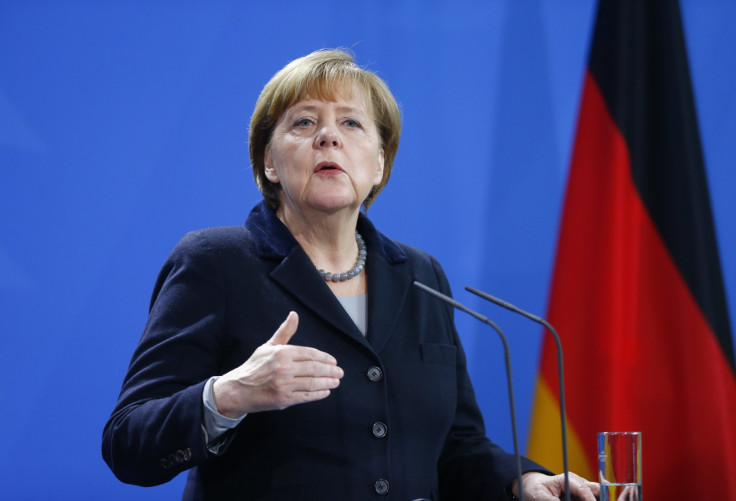Merkel Ally Threatens Legal Action Over Refugee Policy

A prominent ally of Germany's Angela Merkel has threatened to take her government to court over its open door refugee policy as political pressure grows for the chancellor to reduce the number of new arrivals.
Bavarian state premier Horst Seehofer said he would send the federal government a written request within the next two weeks to restore "orderly conditions" at the nation's borders, through which one million migrants and refugees passed last year alone.
"If it doesn't follow, the state government will have no other choice but to file a suit at the Federal Constitutional Court," Seehofer told Der Spiegel magazine on Saturday.
Seehofer has issued a series of ultimatums to Merkel in recent months to press her into taking immediate action to limit the influx of migrants, only to back down at the last minute.
His comments reflect growing doubt among Germans about Merkel's "we can do this" mantra in the face of Europe's biggest migrant crisis since World War Two, especially since sexual assaults in Cologne on New Year's Eve were blamed on migrants.
Merkel's popularity has dropped since the assaults, a poll showed on Friday.
Bavaria, a conservative state that borders Austria to the south, is the home of Seehofer's Christian Social Union (CSU), sister party to Merkel's Christian Democratic Union (CDU), and is the main entry point for migrants and refugees.
The state's finance minister, Markus Soeder, told Der Spiegel that Merkel's refugee policy was not democratically legitimized and said parliament should vote on the matter.
Senior figures from the Social Democrats (SPD), Merkel's second coalition partner, have also broken ranks in recent days.
CHAOTIC
SPD leader Sigmar Gabriel joined the critical voices on Saturday. "We have to get from a chaotic to an orderly immigration," he told several regional newspapers.
Border checks needed to be improved and refugee quotas introduced to control how many people come to Germany, he said.
Germany could take in more than the 200,000 refugees proposed by Seehofer as a cap for this year, but the quota should be significantly below last year's number, he said.
Merkel has vowed to "measurably reduce" arrivals this year, but has refused to introduce a cap, saying it would be impossible to enforce without closing German borders.
Instead, she has tried to convince European partners to take on quotas of refugees, pushed for reception centers to be built on Europe's external borders, and led an EU campaign to convince Turkey to keep refugees from entering the bloc. But progress has been slow.
"If the measures have no impact in the spring, we're moving towards numbers that become difficult," Gabriel said.
Finance Minister Wolfgang Schaeuble defended Merkel and said the problem had to be solved at Europe's external borders. But he added: "The time to accomplish this is limited" and "things are moving too slowly in Europe."
Schaeuble also proposed a special tax on gasoline in EU states to finance refugee-related costs such as strengthening external borders.
© Copyright Thomson Reuters 2024. All rights reserved.











